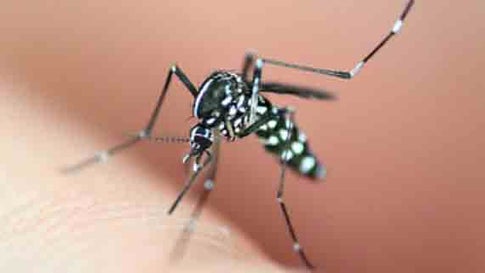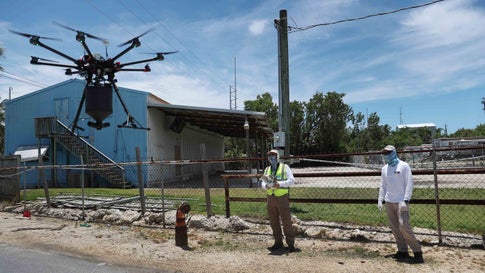What if a single injection could lower blood levels of cholesterol and triglycerides — for a lifetime?
In the first gene-editing experiment of its kind, scientists have disabled two genes in monkeys that raise the risk for heart disease. Humans carry the genes as well, and the experiment has raised hopes that a leading killer may one day be tamed.
“This could be the cure for heart disease,” said Dr. Michael Davidson, director of the Lipid Clinic at the University of Chicago Pritzker School of Medicine, who was not involved in the research.
But it will be years before human trials can begin, and gene-editing technology so far has a mixed tracked record. It is much too early to know whether the strategy will be safe and effective in humans; even the monkeys must be monitored for side effects or other treatment failures for some time to come.
The results were presented on Saturday at the annual meeting of the International Society for Stem Cell Research, this year held virtually with about 3,700 attendees around the world. The scientists are writing up their findings, which have not yet been peer-reviewed or published.
The researchers set out to block two genes: PCSK9, which helps regulate levels of LDL cholesterol; and ANGPTL3, part of the system regulating triglyceride, a type of blood fat. Both genes are active in the liver, which is where cholesterol and triglycerides are produced. People who inherit mutations that destroyed the genes’ function do not get heart disease.
People with increased blood levels of triglycerides and LDL cholesterol have dramatically greater risks of heart disease, heart attacks and strokes, the leading causes of death in most of the developed world. Drug companies already have developed and are marketing two so-called PCSK9 inhibitors that markedly lower LDL cholesterol, but they are expensive and must be injected every few weeks.
Researchers at Verve Therapeutics, led by Dr. Sekar Kathiresan, the chief executive, decided to edit the genes instead. The medicine they developed consists of two pieces of RNA — a gene editor and a tiny guide that directs the editor to a single sequence of 23 letters of human DNA among the genome’s 32.5 billion letters.
The RNA is shrouded in tiny lipid spheres to protect the medicine from being instantly degraded in the blood. The lipid spheres travel directly to the liver where they are ingested by liver cells. The contents of the spheres are released, and once the editor lands on its target, it changes a single letter of the sequence to another — like a pencil erasing one letter and writing in another.
Not only did the system work in 13 monkeys, the researchers reported, but it appeared that every liver cell was edited. After gene editing, the monkeys’ LDL levels dropped by 59 percent within two weeks. The ANGPTL3 gene editing led to a 64 percent decline in triglyceride levels.
One danger of gene editing is the process may result in modification of DNA that scientists are not expecting. “You will never be able to have no off-target effects,” warned Dr. Deepak Srivastava, president of the Gladstone Institutes in San Francisco.
In treating a condition as common as heart disease, he added, even an uncommon side effect can mean many patients are affected. So far, however, the researchers say that they have not seen any inadvertent editing of other genes.
Another question is how long the effect on cholesterol and triglyceride levels will last, Dr. Davidson said. “We hope it will be one-and-done, but we have to validate that with clinical trials,” he said.
Jennifer Doudna, a biochemist of the University of California, Berkeley, and a discoverer of Crispr, the revolutionary gene editing system, said: “In principle, Verve’s approach could be better because it’s a one-time treatment.”
But it is much too soon to say if it will be safe and long-lasting, she added.
If the strategy does work in humans, its greatest impact may be in poorer countries that cannot afford expensive injections for people at high risk of heart disease, said Dr. Daniel Rader, chairman of the department of genetics at the University of Pennsylvania and a member of Verve’s scientific advisory board.
Dr. Kathiresan, of Verve, noted that half of all first heart attacks end in sudden death, making it imperative to protect those at high risk.
Dr. Kathiresan began the research at the Massachusetts General Hospital and the Broad Institute, where he and his colleagues found a collection of genes that increase risk of heart attack at a relatively young age, as well as eight genes that, when mutated, decrease risk.
Those protective genes, he reasoned, could be targets for gene editing if there were a way to alter them in people. Gene editing is only now succeeding, and so far its successes have been in rare diseases.
Other investigators and companies have tried editing genes in mice to prevent heart disease, with some success, but primates are a much more difficult challenge.
Dr. Kathiresan said that to his knowledge, his study is the first to use the pencil-and-eraser type gene editing in primates for a very common disease. Verve licensed the technology, called base editing, from Beam Therapeutics.
If all goes well, Dr. Kathiresan hopes in a few years to begin treating people who have had heart attacks and still have perilously high cholesterol. For them, the risk of another heart attack is so high that the possible benefit may far outweigh the risks of the treatment.
Heart disease generally occurs only after decades of high cholesterol levels, Dr. Davidson noted. By age 50, people most likely to have a heart attack already have a significant accumulation of plaque in their arteries.
But if the PCSK9 gene could be knocked out in 20-year-olds, he said, “there would be no heart disease in their future.”



 & © 2018 Cable News Network, Inc., a Time Warner Company. All rights reserved.
& © 2018 Cable News Network, Inc., a Time Warner Company. All rights reserved.
